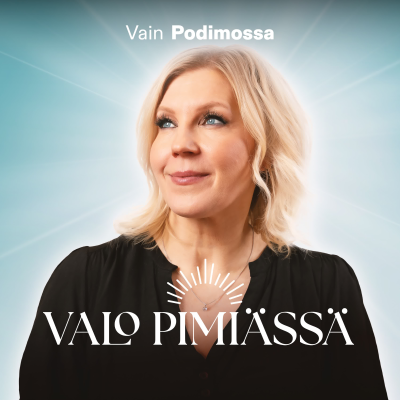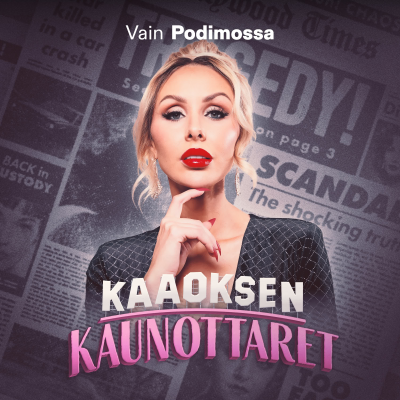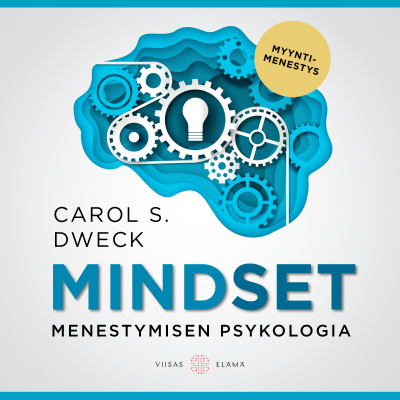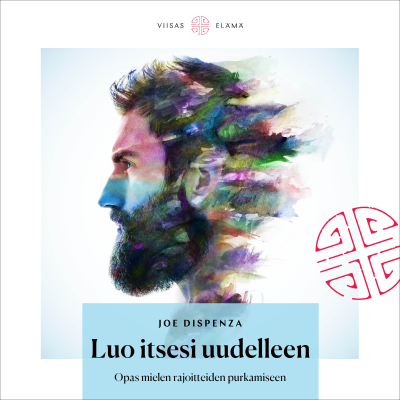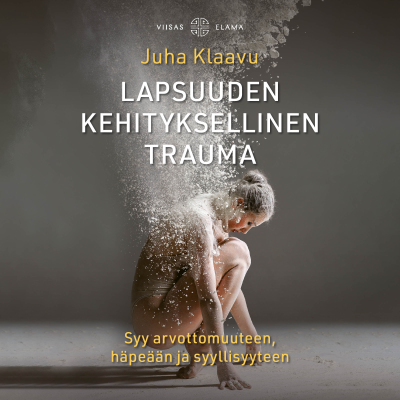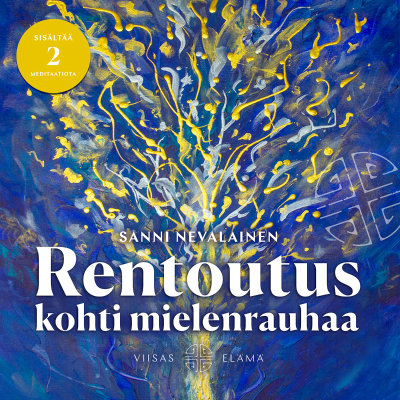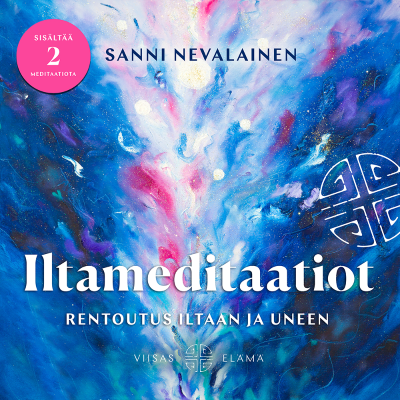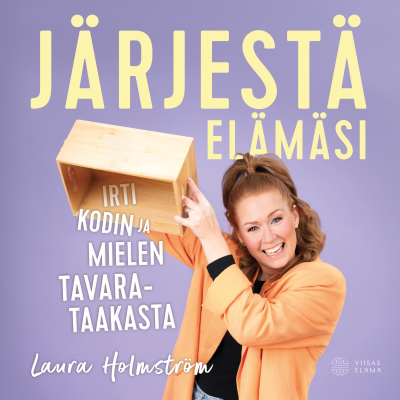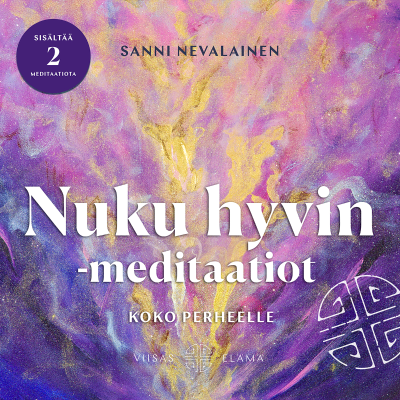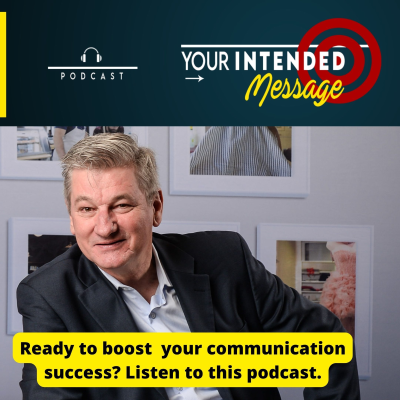
Your Intended Message
englanti
Teknologia & tieteet
Rajoitettu tarjous
1 kuukausi hintaan 1 €
Sitten 7,99 € / kuukausiPeru milloin tahansa.
- Podimon podcastit
- Lataa offline-käyttöön
Lisää Your Intended Message
The podcast about Effective Communication in Business Better communication skills will advance your career and business. Are you ready to enhance your understanding and results from better communication? Listen and learn how to deliver Your Intended Message. Are you willing to cross-examine communication from various perspectives? Would you like to deliver your intended message more effectively?Listen to Your Intended Message to gain a powerful advantage in your ability to convey your message to your audience, team, clients or marketplace.Learn from the mistakes and success of communication experts from around the world from different scenarios. The better communicator has the competitive advantage.Imagine what that means to you when you improve the success of your next conversation, presentation or message. Your Host - George Torok https://yourintendedmessage.com/
Kaikki jaksot
287 jaksotServant Leadership in Business: Jim Hardwick
When You Serve First, Business Follows How a Servant’s Heart Builds Trust, Teams, and Sustainable Sales Episode 287 (Jim is based in Arizona) In this conversation with Jim Hardwick we explore: * why serving others builds trust faster than traditional selling * how servant leadership strengthens teams without weakening authority * the role of vulnerability in effective leadership * why intentional service creates long-term business growth * how listening to employees improves motivation and retention * the difference between serving from obligation versus passion * why giving time and advice often returns greater value than money * how service creates personal fulfillment beyond financial success * the connection between trust, sales, and sustainable growth * practical ways leaders can serve locally without grand gestures ----- About our guest: Jim welcomes your questions about sales. Enjoy a no-charge conversation with him. Call him - 623-451-1080 Email - jhardwick@salesxceleration.com [jhardwick@salesxceleration.com] Jim Hardwick on Linkedin [https://www.linkedin.com/in/jim-hardwick-2b016914/] ----- Key lessons from this podcast: * serving others builds trust, which is the foundation of sustainable business growth * a servant’s heart shifts leadership from taking to giving without weakening authority * intentional service creates stronger relationships with employees, clients, and communities * vulnerability from leaders encourages honesty, loyalty, and higher engagement * serving employees’ personal goals increases motivation and performance * trust grows when leaders focus on helping rather than selling * service must come from genuine passion, not obligation * giving time, advice, or attention often creates greater long-term value than money * servant leadership improves sales by focusing on solving real problems * meaningful service creates personal fulfillment beyond financial success ----- ----more---- Your Intended Message is the podcast about how you can boost your career and business success by honing your communication skills. We’ll examine the aspects of how we communicate one-to-one, one to few and one to many – plus that important conversation, one to self. In these interviews we will explore presentation skills, public speaking, conversation, persuasion, negotiation, sales conversations, marketing, team meetings, social media, branding, self talk and more. Your host is George Torok George is a specialist in communication skills. Especially presentation. He’s fascinated by the links between communication and influencing behaviors. He delivers training and coaching programs to help leaders and promising professionals deliver the intended message for greater success. Connect with George www.SpeechCoachforExecutives.com [http://www.speechcoachforexecutives.com/] https://superiorpresentations.net/ [https://superiorpresentations.net/] https://www.linkedin.com/in/georgetorokpresentations/ [https://www.linkedin.com/in/georgetorokpresentations/] https://www.youtube.com/user/presentationskills [https://www.youtube.com/user/presentationskills1]
12 Communication Lessons from David Copperfield
How David Copperfield Creates Belief What a Master Illustionist Taught Me about Communication and Leadership This wasn't an intterview. It was me live on stage with David Copperfield at the MGM Grand in Las Vegas. I had no idea that I would learn so much from this experience as a volunteer in his magic act. ----- Key Lessons from this experience: * there is no magic, only mastery * perception matters more than reality * people believe what they want to believe * the audience (customer) is always right * preparation and rehearsal create confidence * calm response beats visible stress * great teams move in harmony * hope is a powerful motivator * fun strengthens connection * vulnerability builds trust * technology must support the message, not replace it * self-investment is the real secret ----- In this live stage performance we explored: * why mastery beats magic every time * how perception shapes belief * influencing belief without controlling people * respecting the audience while guiding outcomes * the role of rehearsal in consistent performance * responding calmly when things go wrong * building teams that move in sync * using hope as a leadership force * making professionalism fun * why vulnerability strengthens credibility * keeping technology in its proper place * investing in yourself as the ultimate advantage ----- ----more---- Your Intended Message is the podcast about how you can boost your career and business success by honing your communication skills. We’ll examine the aspects of how we communicate one-to-one, one to few and one to many – plus that important conversation, one to self. In these interviews we will explore presentation skills, public speaking, conversation, persuasion, negotiation, sales conversations, marketing, team meetings, social media, branding, self talk and more. Your host is George Torok George is a specialist in communication skills. Especially presentation. He’s fascinated by the links between communication and influencing behaviors. He delivers training and coaching programs to help leaders and promising professionals deliver the intended message for greater success. Connect with George www.SpeechCoachforExecutives.com [http://www.speechcoachforexecutives.com/] https://superiorpresentations.net/ [https://superiorpresentations.net/] https://www.linkedin.com/in/georgetorokpresentations/ [https://www.linkedin.com/in/georgetorokpresentations/] https://www.youtube.com/user/presentationskills [https://www.youtube.com/user/presentationskills1]
Listening vs Hearing, The Leadership Advantage: Julian Treasure
The Missing Leadership Skill: How to listen for Real Results Listening for Oppportunity, Danger and Challenge Episode 285 (Julian is based in the Orkney archipelago northeast of Scotland) In this conversation with Julian Tresure we explore: * why listening is a learnable skill rather than a personality trait * the difference between hearing and conscious listening * how personal filters shape what people hear * why senior leaders often struggle most with listening * how validation changes difficult conversations * the impact of poor listening on organizational culture * why diversity of opinion matters more than agreement * how listening supports better decision-making in times of change ----- About our guest Julian Treasure: Julian Treasure is an author and international speaker on sound and communication skills. His five TED talks have been viewed over 150 million times and his book “How To Be Heard” won both Audie and SOVAS awards for best business audiobook. His company The Sound Agency has been helping major global brands to improve their sound since 2003. Learn more about Julian and his programs at https://www.juliantreasure.com/ [https://www.juliantreasure.com/] Books by Julian Treasure https://www.juliantreasure.com/books [https://www.juliantreasure.com/books] ----- Key learning points * listening is a learnable skill, not a natural talent * most people significantly overestimate how well they listen * listening is the foundation of effective communication * every person listens through unique filters shaped by experience and emotion * strong emotions reduce the ability to listen well * listening becomes more difficult as people gain seniority and authority * organizations suffer when leaders avoid listening to bad news * validation is essential for productive dialogue and healthy relationships * diversity of opinion strengthens decision-making and resilience * listening helps leaders detect opportunity, danger, and challenge ----- ----more---- Your Intended Message is the podcast about how you can boost your career and business success by honing your communication skills. We’ll examine the aspects of how we communicate one-to-one, one to few and one to many – plus that important conversation, one to self. In these interviews we will explore presentation skills, public speaking, conversation, persuasion, negotiation, sales conversations, marketing, team meetings, social media, branding, self talk and more. Your host is George Torok George is a specialist in communication skills. Especially presentation. He’s fascinated by the links between communication and influencing behaviors. He delivers training and coaching programs to help leaders and promising professionals deliver the intended message for greater success. Connect with George www.SpeechCoachforExecutives.com [http://www.speechcoachforexecutives.com/] https://superiorpresentations.net/ [https://superiorpresentations.net/] https://www.linkedin.com/in/georgetorokpresentations/ [https://www.linkedin.com/in/georgetorokpresentations/] https://www.youtube.com/user/presentationskills [https://www.youtube.com/user/presentationskills1]
From Rock Bottom to Millionaire: David Price
Communication, Recovery, and Massive Action Massive Success Requires Massive Action Episode 285 (David spends his time between Floirda and Puerto Rico) In this conversation with David Price we explore: * how a destructive inner narrative keeps people stuck and how to rewrite it * why massive change requires massive action * how relocating or disrupting routine can break old patterns * how listening to successful people accelerates learning and results * how emotional truth drives better communication and better sales * how to uncover the client’s real fears and desires through deeper questions * why vulnerability and honesty strengthen client trust * how to succeed in selling the most intangible product—life insurance * why heart and resilience matter more than experience in entrepreneurship * how refusing to quit transforms long-term outcomes and personal identity ----- About our guest, David Price: David spent nearly 20 years battling addiction and has been clean and sober for 12 years. He entered the insurance industry in 2018 and became one of the fastest to reach millionaire status. In 2004 he walked away from a $2 million annual income to rebuild on his own term after challenging how agents were being treated. Learn more about David and working with him in the life insurance business at: https://tpglife.com/ [https://tpglife.com/] ----- Key lessons from this conversation with David Price: * change demands massive action, not minor adjustments * listen to people who demonstrate results, not those who speak the loudest * emotional self-talk shapes choices, progress, and setbacks * drastic change in environment can break destructive patterns * selling begins with uncovering the client’s emotional reason for buying * effective communication requires truth, clarity, and genuine listening * emotional sales outperform logical sales, especially for intangible products * success in entrepreneurship depends on showing up consistently * heart, resilience, and coachability matter more than experience * momentum grows when you refuse to quit and commit daily to action ----- ----more---- Your Intended Message is the podcast about how you can boost your career and business success by honing your communication skills. We’ll examine the aspects of how we communicate one-to-one, one to few and one to many – plus that important conversation, one to self. In these interviews we will explore presentation skills, public speaking, conversation, persuasion, negotiation, sales conversations, marketing, team meetings, social media, branding, self talk and more. Your host is George Torok George is a specialist in communication skills. Especially presentation. He’s fascinated by the links between communication and influencing behaviors. He delivers training and coaching programs to help leaders and promising professionals deliver the intended message for greater success. Connect with George www.SpeechCoachforExecutives.com [http://www.speechcoachforexecutives.com/] https://superiorpresentations.net/ [https://superiorpresentations.net/] https://www.linkedin.com/in/georgetorokpresentations/ [https://www.linkedin.com/in/georgetorokpresentations/] https://www.youtube.com/user/presentationskills [https://www.youtube.com/user/presentationskills1]
Why Servant Leaders Win: Gary Ridge
The Donkey Leadership Mindset Every Leader Needs From "I Don't Know: to Great Leadership Episode 284 (Gary is based in California) In this conversation with Gary Ridge we explore: * how humility accelerates learning and strengthens leadership * why saying “I don’t know” unlocks collective intelligence * what servant leadership looks like in practice inside WD-40 * how leaders shift from managing to coaching * why culture requires consistency, not charisma * what it means to lead from the “stinky locker room” * how clarity about “what an A looks like” transforms performance * why purpose matters more than product * how to protect culture by removing toxins early * how great leaders help people step into the best version of themselves ----- About Our Guest, Gary Ridge: Garry has 25 years of experience as Chairman and CEO of WD-40 Company. He is also an adjunct professor at the University of San Diego, where he teaches the principles and practices of corporate culture in the Master of Science in Executive Leadership program. He’s the USA Today Bestselling Author of Any Dumb Ass Can Do It and co-author of Helping People Win at Work with Ken Blanchard. Learn more about Gary Ridge and his services at https://thelearningmoment.net/ [https://thelearningmoment.net/] Follow Gary on Linkedin https://www.linkedin.com/in/garryridge/ [https://www.linkedin.com/in/garryridge/] ----- Key Points from this Conversation with Gary Ridge: 1. Leadership begins with humility and the willingness to say “I don’t know.” 2. Great leaders embrace the role of forever learner and forever teacher. 3. Coaching, not managing, is the true work of effective leadership. 4. Trust is built in the “stinky locker room,” not the corner office. 5. Culture requires values, behavior, and consistency — not quick fixes. 6. Purpose gives meaning beyond the product and unites people around impact. 7. Clarity about “what an A looks like” prevents conflict and accelerates performance. 8. Leaders must remove cultural toxins early, even when performance is high. 9. Ego destroys leadership; empathy and awareness enable it. 10. Leadership is not about the leader — it is about helping people step into the best version of themselves. ----- ----more---- Your Intended Message is the podcast about how you can boost your career and business success by honing your communication skills. We’ll examine the aspects of how we communicate one-to-one, one to few and one to many – plus that important conversation, one to self. In these interviews we will explore presentation skills, public speaking, conversation, persuasion, negotiation, sales conversations, marketing, team meetings, social media, branding, self talk and more. Your host is George Torok George is a specialist in communication skills. Especially presentation. He’s fascinated by the links between communication and influencing behaviors. He delivers training and coaching programs to help leaders and promising professionals deliver the intended message for greater success. Connect with George www.SpeechCoachforExecutives.com [http://www.speechcoachforexecutives.com/] https://superiorpresentations.net/ [https://superiorpresentations.net/] https://www.linkedin.com/in/georgetorokpresentations/ [https://www.linkedin.com/in/georgetorokpresentations/] https://www.youtube.com/user/presentationskills [https://www.youtube.com/user/presentationskills1]
Valitse tilauksesi
Rajoitettu tarjous
Premium
Podimon podcastit
Lataa offline-käyttöön
Peru milloin tahansa
1 kuukausi hintaan 1 €
Sitten 7,99 € / kuukausi
Premium
20 tuntia äänikirjoja
Podimon podcastit
Lataa offline-käyttöön
Peru milloin tahansa
30 vrk ilmainen kokeilu
Sitten 9,99 € / kuukausi
Premium
100 tuntia äänikirjoja
Podimon podcastit
Lataa offline-käyttöön
Peru milloin tahansa
30 vrk ilmainen kokeilu
Sitten 19,99 € / kuukausi
1 kuukausi hintaan 1 €. Sitten 7,99 € / kuukausi. Peru milloin tahansa.

